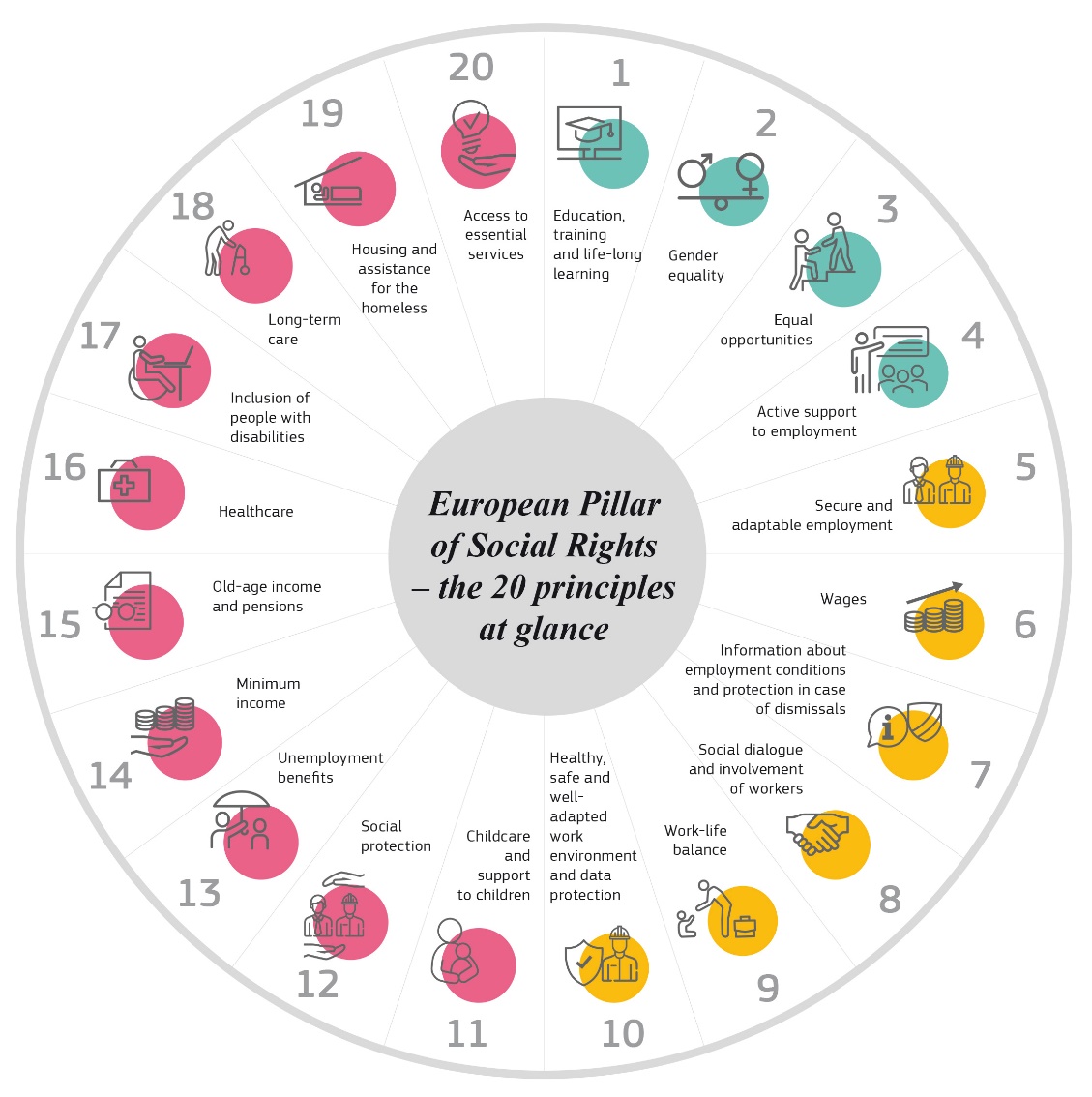EPSR
The European Pillar of Social Rights
In November 2017, at the Gothenburg Social Summit, the European Union took a significant step toward the idea of being a “Social Europe” with the adoption of the European Pillar of Social Rights. This initiative has introduced twenty fundamental principles across three key domains: 1) equal opportunities and access to the labour market, 2) fair working conditions, and 3) social protection and inclusion. The EPSR translates into a more tangible and concrete dimension the ethos of the EU Charter of Fundamental Rights adopted in 2009, in particular the titles “equality” and “solidarity”. Although the EU's social roots were not ignored by the Treaty of Rome in 1957, they were not explicitly recognised as a fundamental drive of European integration, at least until the Delors Commission in the late 1980s. The “long and winding road” of social policy has been hindered by years of neoliberal dominance and lack of political agreement until 2017 and the reaction to the COVID-19 pandemic gave new prominence to the social agenda. The introduction of the NextGenerationEU recovery package marked a significant turning point. Indeed, by enabling shared debt issuance and prioritising investments in social resilience, it signalled a decisive shift away from the austerity-driven policies of the past and toward a more integrated and socially cohesive Europe. The launch of the EPSR Action Plan in Porto in 2021 - announced for 2025 in von der Leyen’s political guidelines for the 2024-2029 Commission - give continuity to this perspective. However, the EPSR does not create new competencies for the EU in the realm of social rights and policy. Nevertheless, its significance lies in fostering the progressive development of a "Social Europe," as a dynamic and evolving process. Scholars continue to debate the nature of the EPSR and, specifically, whether it should be understood as a collection of aspirational guidelines or as a concrete set of binding legislative actions. Recent directives - such as Directive 2019/1158 on work-life balance for parents and carers, Directive 2022/2041 on adequate minimum wages, and Directive 2024/2831 seeking to improve the working conditions in platform work - demonstrate how EPSR principles are shaping EU policy and influencing member states’ legislation. Also, the Council Recommendation (2023/C 41/01) on adequate minimum income ensuring active inclusion testifies a significant step in the same direction, albeit currently through a soft-law approach. Furthermore, the relevance of this issue is highlighted by the growing significance of the European Court of Justice's case law in social matters and the litigation pending before it, which calls into question the very legitimacy of some of the abovementioned directives (i.e. case C‑19/23). Finally, the EPSR seems destined to acquire further importance following the probable accession of the Union to the ECHR and the European Social Charter.
